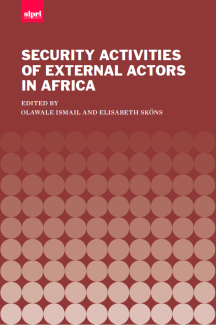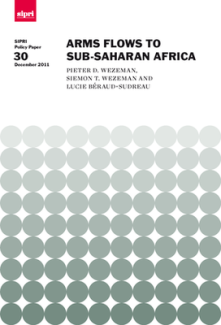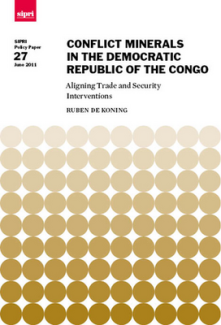Archived research
This page is for historical purposes and is no longer maintained
Africa Security and Governance Project
Nevertheless, external actors continue to retain significant influence on security and governance in much of Africa, often providing assistance that is reflective of their economic and political interest. Despite this, there is limited knowledge about the overall extent and nature of external security-related activities in Africa.
African civil society organizations (CSOs) have an important role to play in shaping peace and security policies and processes in Africa. There are also increasing opportunities in Africa for civil society to engage in peace and security issues. However, African CSOs generally lack the background, experience and knowledge to engage in these issues, which in many African countries requires a high degree of political judgement and knowledge.
The main objectives of the Africa Security and Governance project are to:
- map and critically assess the security-related activities of external actors in sub-Saharan Africa;
- support African civil society organizations in analysing—and raising awareness about—security- and governance-related issues, both at home and abroad; and
- conduct outreach activities in African countries to disseminate project findings.
The support for African CSOs took place during the period April 2009–March 2012. During this phase the project worked in partnership with CSOs in five sub-Saharan African countries: Cameroon, Ghana, Liberia, Mali andZimbabwe. These CSOs produced case studies on important security and governance issues in their countries. In cooperation with SIPRI, they organized major outreach activities in their countries to disseminate and discuss project findings and recommendations.
The mapping studies of external actors cover five countries—China, France, Russia, the United Kingdom and the UNited States—as well as two intergovernmental organizations: the European Union and the United Nations.
In the period April 2009–March 2012, the project was supported by the Open Society Institute (www.soros.org).
RESEARCH INITIATIVES
One of the overarching aims of SIPRI’s Africa Security and Governance (ASG) project is to generate knowledge and provide facts on security-related policies and activities in sub-Saharan Africa. The project includes two types of study: mapping studies and country case studies.
Research staff
no researchers


